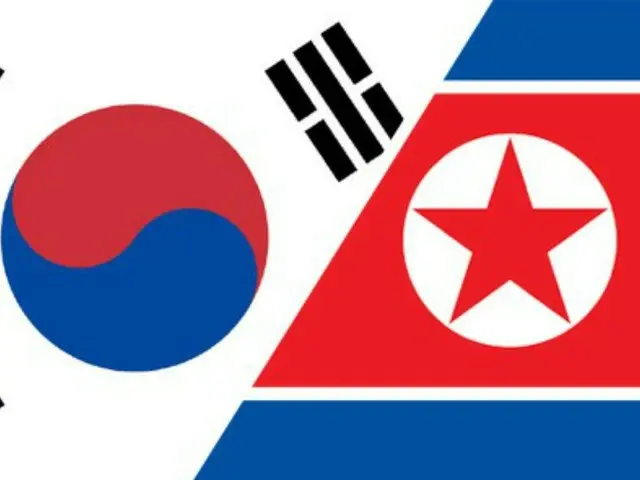During the conference, the North-South relationship was described as "an enemy bilateral relationship, not a kinship relationship," and the policy of "anti-unification policy" was made clear. However, after that, the government started to physically build a wall and move forward with the establishment of a "border line" between the North and South.
According to a South Korean government official on the 14th, the wall is being constructed along the Military Demarcation Line, about 1 kilometer to the north.
The wall was spotted at multiple locations in the eastern, central and western parts of the military demarcation line. The South Korean military also spotted soldiers working on what appeared to be the construction of a wall.
"Further analysis is needed to determine whether they are building a long wall reminiscent of the Berlin Wall, which separated East and West Germany during the Cold War, or whether they are building security facilities in some areas," the report said.
On the 17th, the South Korean Ministry of National Defense explained that it was an "anti-tank barrier-like wall." On the 9th, North Korean soldiers armed with shovels briefly crossed the military demarcation line.
The move may be related to the construction of a wall. Conflict between North and South Korea is on the rise, and in a speech at the Supreme People's Assembly (equivalent to the National Assembly) in January this year, Kim Jong Un called South Korea "the No. 1 enemy country."
He stressed the need to clearly state in the constitution that "the Korean Peninsula is the unchanging main enemy." He also declared that "we will put an end to the 80-year history of North-South relations," and said, "We will thoroughly destroy everything that connects the North and South Koreas near the military demarcation line."
"We will cut it off," he said. After that, North Korean soldiers were spotted laying mines and reinforcing barbed wire in the Demilitarized Zone (DMZ) along the military demarcation line.
South Korea's public broadcaster KBS, which reported on the move last month, analyzed at the time that "the mine-laying work appears to be a measure to create a visible 'border' between the North and the South, following instructions from Chairman Kim Jong Un."
It has become clear that North Korea is moving forward with the construction of a wall following the burial of landmines, and the South Korean newspaper Chosun Ilbo has stated that "the series of 'anti-unification' actions (of the Korean peninsula) are not merely declarations, but are also intended to be carried out physically."
"It is believed to be a sign of a complete severance of ties with South Korea for the people of North Korea, but a video recently posted on the video sharing website YouTube has caused a stir.
The video shows a man approaching a monument to Kim Jong Un's grandfather, the late Kim Il Sung, and pouring ink over it.
The caption read, "We will now destroy the traces of the Kim family, which are now more numerous than the gravestones. The big cleanup of New Joseon has begun."
According to the TV Asahi, the video was posted on YouTube by the anti-government group "Shin Chosun" (New Joseon), which opposes the Kim Jong Un regime, under the title "Footage sent from Pyongyang."
The group is believed to be based overseas, but details are unknown. South Korea's intelligence agency, the National Intelligence Service, said, "We are aware of the group, but we are not aware of its operating organization or size."
As there are signs of resistance to the Kim Jong Un regime, North Korea's construction of a wall and the burial of landmines along the military demarcation line may have other aims than emphasizing its "anti-unification" stance.
The Chosun Ilbo newspaper published an editorial titled "Building a wall along the armistice line will not stop North Korean youth from admiring South Korea." The paper was written by the North Korean MZ generation (those born between the 1980s and 2010s).
He pointed out that this generation "will not unconditionally submit to the authority of General Secretary Kim." He also said, "The primary purpose of the wall is to prevent 'MZ generation North Korean soldiers' from defecting from North Korea."
If information about Korean culture and social conditions were to leak to soldiers, especially those of the MZ generation, it could lead to them defecting from North Korea or even to plotting the downfall of the regime due to growing dissatisfaction.
The wall and landmines may also be intended to block information. On the other hand, the paper said, "The former East Germany built the Berlin Wall in 1961, but it was not intended to block the flow of information from the free world.
"When the government was unable to stop the protests and domestic discontent and contradictions erupted, the wall collapsed in an instant. That may happen to North Korea in the future," he said.
2024/06/19 14:25 KST
Copyrights(C)wowkorea.jp 5

